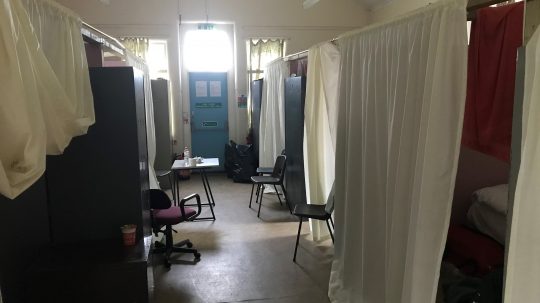The High Court has granted permission to proceed with a challenge to an undisclosed Home Office policy which states that asylum seekers can only be dispersed from temporary hotel accommodation on an “expedited” basis if there are “exceptional circumstances”.
The court will hear a judicial review from a single mother of two, who was left destitute and denied baby food for her children while placed in temporary accommodation.
The mother, who sought asylum with a baby and young child, had been placed in a small, single hotel room for several months. While it was claimed that the accommodation would be “full board”, the mother found the food was “inadequate and lacking nutrition”, and that the hotel did not provide her with baby food.
The Home Office ‘refused’ to move her to long-term accommodation on the basis that she did not meet the “exceptional circumstances” requirement to be housed in long-term accommodation.
The case has been brought forward on the grounds that the exceptional circumstances policy is “unlawful”.
The solicitors firm, Deighton Pierce Glynn (DPG), which has been instructed for the case, stated that the grounds include the following:
- “The Home Office introduced an unlawful, unpublished policy that requires “exceptional circumstances” to be shown before an asylum-seeking family can be dispersed from interim accommodation on an “expedited” basis.”
- “The undisclosed policy unlawfully fettered the discretion of the Home Office to disperse asylum seekers sooner than in chronological order.”
- “In operating an “exceptional circumstances” policy, and in the claimant’s specific case, the Home Office failed to have due regard to the best interests of children, contrary to section 55 of the Borders, Citizenship and Immigration Act (2009).”
- “The decision to accommodate the claimant and her family in a small hotel room with inadequate food breached the duty to provide adequate accommodation and moreover failed to take into account the family’s individual circumstances as material considerations.”
Breaching rights
The Home Office’s failure to move the claimant may have breached her right to private and family life under Article 8 of the Human Rights Act. Under Article 11 of the International Covenant on Economic, Social and Cultural Rights, everyone has the right to an adequate standard of living.
DPG said: “The family are now settled in long-term accommodation, with their own kitchen and funds to buy their own food.” The solicitors stated that the Home Office resisted the claim being allowed to continue, arguing that the issue was now “academic and in any event unarguable”.
However, in a separate decision, His Honour Judge Sephton QC rejected the secretary of state’s arguments and granted the claimant permission to proceed on all grounds. The judge held that the case was not academic and said: “It is in any event arguable that the matters raised in this claim are of public importance and require to be ventilated.”
The case will proceed to a final hearing later this year. The Home Office was contacted at the time of publication.





